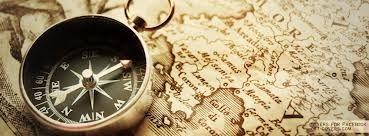Japan claims that it needs to catch (kill) 850 minke, 50 fin and 50 humpback whales every year for ‘scientific’ purposes. THANKFULLY the International Court of Justice has ordered Japan to stop its whaling program because it has found that the program is not actually for scientific purposes that the Japanese government had claimed.
This Japanese whaling program has been criticized for years due to its unsustainable and unethical nature. Analysis has shown that if this program of hunting whales, dolphins and porpoises continues, many species may be driven to extinction, but Japanese governments have defended its program by declaring it a tradition practice. For hundreds of years Japanese cultures have hunted whales and they are offended by the suggestion that this part of their culture needs to stop because this is threatening their culture. But it is much more than that.
ETHICS: Whales are highly evolved and highly intelligent mammals that can feel pain and who have the right to live no matter what their economic value.
SUSTAINABILITY: Many whales are either extinct or endangered and with programs existing to hunt these animals their precarious situations will only worsen, making it folly to continue to kill them.
WHALE WATCHING INDUSTRY: A US$ 1 billion per year industry, whaling initiatives can only harm these businesses’ causing economic hardship and a loss of entertainment.
CONTROVERSY: The Japanese whaling industry has faced numerous counts of scandal, debt and corruption accusations regarding their operations.
GLOBAL EFFECTS: Whales contribute in many ways to create and maintain life in the oceans around the world. The ocean plays major environmental, economic and social roles around the world, and if whales were to become extinct, humans everywhere would be negatively affected.
It is great to see this major step against whaling take place. Hopefully in the future all other nations such as Norway and Iceland will see similar changes that protect these great species. Finally, if you ever have the opportunity to go whale watching, I suggest you capitalize on the opportunity because it is an awesome experience as the picture above shows!
For more information on this topic check out these links (especially #5! So cool.):
- http://www.cnn.com/2014/03/31/world/asia/japan-whale-hunt/
- http://www.nytimes.com/2014/04/01/world/europe/united-nations-court-rules-against-japan-in-whaling-dispute.html
- http://www.greenpeace.org/international/en/campaigns/oceans/whaling/ending-japanese-whaling/
- http://www.animalplanet.com/tv-shows/whale-wars/about-whaling/why-japanese-hunt-whales.htm
- http://animals.nationalgeographic.com/animals/photos/whales/
As always: comments, questions, concerns or even random thoughts? I would love if you shared them with me so please comment below!

